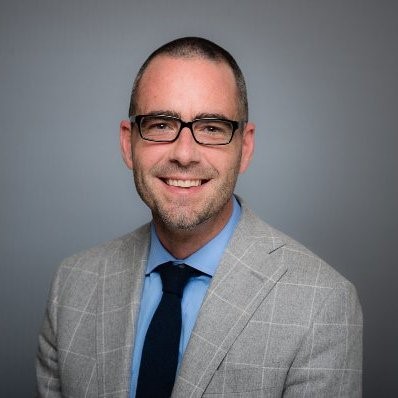Stephen Young, National Director of Strategic Analytics at McDonald's Canada

Claus Rinner: Hi Stephen. The other day, the Toronto Star ran a feature on how McDonald’s Canada continues to fight the “junk food” reputation associated with the company name. They mention a billion-dollar initiative to modernize 1,400 restaurants in 2011 – I believe your team was a major contributor to this initiative?
Stephen Young: Yes Claus, McDonald’s is constantly establishing new and innovative menu, physical plant and operational choices to meet the needs of our customers. In 2011, we completed the largest restaurant reinvestment initiative in the company’s history. My team of Spatial Research Consultants built the sequencing plan for all 1,400 restaurants. This spatial and temporal plan allowed for better scheduling of vendors/resources, and also minimized downtime and maximized cash flow, as we ensured no neighbouring restaurants were closed at the same time; thus allowing for sales recapture to adjacent sites during closure. The sequencing plan represented the use of geospatial skills in the truest sense.
CR: You completed two degrees from our Department, the BA in Geographic Analysis in 2005 and the MSA in Spatial Analysis in 2008. How did you use this education at the different stages of your career?
SY: The two degrees continue to be the basis for all work that I do professionally. To start, the practicum component of the undergraduate program landed me my first job with Scotiabank! I used the practicum to show the GIS, presentation and report writing skills I had acquired at Ryerson, and then I worked hard to prove to the company that they needed my expertise. I worked at Scotia doing customer/market research and analytics for 3+ years. I completed the MSA degree part time while I worked, which was a massive benefit, as I was balancing work and a new baby at the time. Without the part time option, I wouldn’t have been able to complete the post-graduate degree. The MSA Research Paper, which I completed on sales estimation, actually helped me create models that I use today to estimate sales for new locations.
CR: How come a Geographer like yourself is leading a major retail brand’s strategic analytics unit?
SY: The fundamental skills from the Geographic Analysis program are applicable to so many areas of business these days. Data mining and big data analytics are huge growth fields, and the use of GIS software and relational databases allow for this type of analytics, whether in a spatial or aspatial dimension. Further, all large companies in today’s environment want to learn more about their customer base; enabling more direct and targeted marketing. The GIS and geodemographics courses completed in both the undergraduate and MSA programs provide the skills to analyze customer data, socio-economics and other factors from a trade area or market perspective, which is a huge competitive advantage in learning about your customers. My team work with various departments, including Marketing, Finance, Restaurant Development just to name a few. Data is knowledge, and knowledge is power in business. The core skills gained in the Geographic Analysis and MSA programs provide the foundation to add value as soon as you start with a company.
CR: What is your team’s composition?
SY: In terms of the team, I currently employ four other MSA grads as Spatial Research Consultants, and our collective team does a lot of market analytics, sales and cannibalization estimation, and customer segmentation, which were direct learnings from the program. The need for our skills continues to evolve, as companies acquire more data through mobile applications and digital strategies. The database management skills provided in the Geographic Analysis and MSA programs allow the team to seamlessly transition into any required data analytics.
CR: Stephen, thank you so much for your time and for helping us explain how Geographers keep businesses thriving!